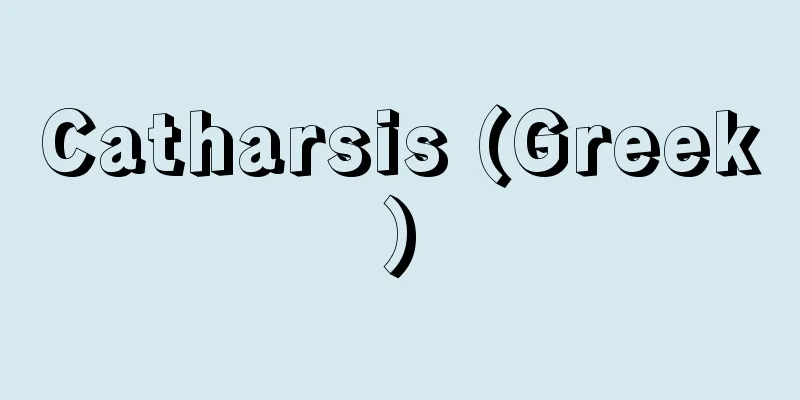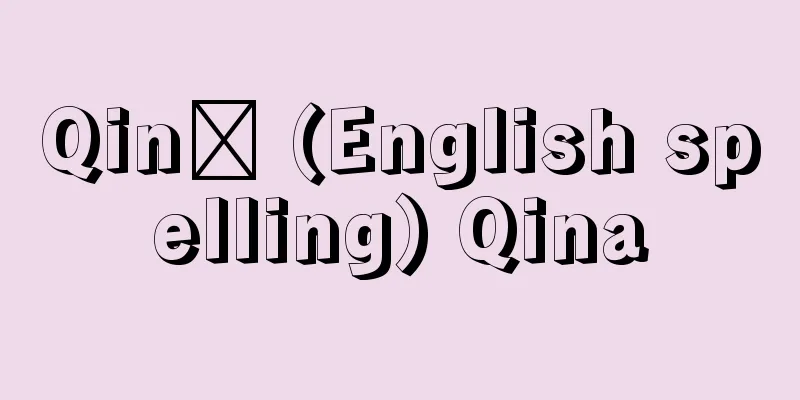Catharsis (Greek)

|
The original meaning of the word in ancient Greek was "to make pure (kataron), purification." As a religious term, it meant exorcism to remove religious sins (such as the impurity of murder), and as a medical term, it meant a method to excrete impurities from the body. Plato sometimes likened the function of philosophy to this religious and medical purification, saying that philosophy is to remove from the soul the impurities that it acquired by joining with the body, and to separate the soul from the body as much as possible. In this way, the soul regains the pure state that it possesses as a soul itself, and comes into contact with the true nature of pure existence itself. This is the state of the soul that philosophy seeks (phronesis) (Phaedo 66B-68B). Some believe that Platonic terminology has its origins in the Pythagoreans, who preached purification of the soul through religious abstinence and academic study (mathematics and musical theory), but it is questionable whether the pre-Platonian Pythagoreans extended the term catharsis to include academic study. In Aristotle, the term was used as a literary term, particularly in reference to the purifying effect that tragedy has on the human soul, and he defined tragedy as "the catharsis of pity and fear through these emotions" (Poetics 1449b27-28). This line, added without elaboration, became the subject of colorful and sustained debate in the history of interpretation of Aristotle's Poetics. [Nobuaki Kato] DiarrheaExpressing pain or worries in words can sometimes relieve them, but in psychotherapy this is called diarrhea (also called cleansing), and the reaction that causes diarrhea is called ablation. When appropriate ways to release tension are blocked and emotions build up, pathological results result. Catharsis is the process of evoking repressed and unconscious emotions that are the source of pathological symptoms and releasing emotional complexes. It is no exaggeration to say that the therapeutic effects of all psychotherapy are partly due to catharsis. In the psychodrama method of Austrian (later American) psychiatrist Moreno, catharsis is said to occur by re-enacting psychological conflicts as improvised plays. Although the therapeutic effects of catharsis do not seem to be given much importance in psychoanalysis, the treatment of free association is nothing more than remembering forgotten past events, so it cannot be said to be unrelated to catharsis. This is because giving linguistic form to elusive emotions leads to self-insight and lasting catharsis can be expected. [Daisaku Tonobayashi and Masamichi Kawabata] "Aristotle Collected Works 17: Poetics" (1972, Iwanami Shoten) translated and annotated by Imamichi Tomonobu" ▽ "Plato Collected Works 1: Phaedo" (1975, Iwanami Shoten) translated and annotated by Matsunaga Yuji" ▽ "Uchida Katsuyoshi's "Philosophy and Catharsis: Logic and Intuition of Ideas" (1982, Showado)" ▽ "Essential Moreno: Towards Spontaneity, Psychodrama, and Group Psychotherapy" (edited by Jonathan Fox, supervised translation by Isoda Yujiro, translated by Yokoyama Taihan and Isoda Yujiro (2000, Kongo Publishing)" ▽ "Studies on Hysteria, volumes 1 and 2, by Joseph Breuer and Sigmund Freud, translated by Kaneseki Takeshi (Chikuma Gakugei Bunko)" [References] | |Source: Shogakukan Encyclopedia Nipponica About Encyclopedia Nipponica Information | Legend |
|
原義は古代ギリシア語で「清浄な(カタロン)ものにすること、浄化」を意味する。宗教上の用語として、宗教的な罪障(たとえば、殺人などによる穢(けが)れ)を除去するお祓(はらい)をいい、また、医術の用語としては、体内の不純物を排泄(はいせつ)させる手だてをいった。プラトンは、ある場合、哲学(愛知)の働きをこの宗教および医術上の浄化の働きになぞらえ、哲学は、魂から魂が肉体と合することによって受けた不純物を取り除き、魂をできるだけ肉体から引き離すことだとした。これにより、魂は、魂が魂自体としてもつ純粋なあり方を取り戻し、純粋な存在自体の真実相に触れることになる。哲学の求める知(プロネーシス)とはそのような魂のあり方のことである(『パイドン』66B~68B)。このようなプラトンの用語法はピタゴラス派に起源をもつもので、ピタゴラス派は宗教的節制と学問研究(数学と音楽理論)による魂の浄化を説いたとみなす人々もあるが、プラトン以前のピタゴラス派がカタルシスの語を拡張して、学問研究にも適用したかどうかには疑問がある。 アリストテレスでは、この語は文学論上の用語として、とくに悲劇が人間の魂に対して及ぼす清浄化の効果について用いられ、悲劇とは「憐(あわれ)みと恐れの情による、これらの情の浄化(カタルシス)である」と規定された(『詩学』1449b27~28)。詳述することなしに付加されたこの一行は、アリストテレス詩学の解釈史上において、多彩、かつ持続的な論争の的となった。 [加藤信朗] 通痢苦痛や悩みをことばに出して表現すると、その苦痛や悩みを解消することができることがあるが、心理療法ではこれを通痢(浄化ともいう)といい、通痢をおこすような反応を除反応という。緊張を解放する適当な方法が閉ざされ、感情がたまってくると病理的な結果を招くことになる。病理的症状のもととなっている抑圧され意識されない感情を呼び起こし、情緒的コンプレックスを解放することをカタルシスという。あらゆる心理療法の治療効果は、部分的にはカタルシスによるといっても過言ではない。オーストリア(のちアメリカ)の精神科医モレノの心理劇(サイコドラマ)的方法では、心理的葛藤(かっとう)を即興劇として再演することでカタルシスが生じるとされている。精神分析ではカタルシスの治療効果はあまり重視されていないかのようにみえるが、自由連想という治療法も、忘れた過去を思い出すものにほかならないから、カタルシスと無関係とはいえない。とらえがたい感情に言語的形式を与えることで自己洞察がおき、永続的なカタルシスが期待できるからである。 [外林大作・川幡政道] 『今道友信訳注『アリストテレス全集17 詩学』(1972・岩波書店)』▽『松永雄二訳注『プラトン全集1 パイドン』(1975・岩波書店)』▽『内田克孝著『哲学とカタルシス イデアへの論理と直観』(1982・昭和堂)』▽『ジョナサン・フォックス編著、磯田雄二郎監訳、横山太範・磯田雄二郎訳『エッセンシャル・モレノ――自発性、サイコドラマ、そして集団精神療法へ』(2000・金剛出版)』▽『ヨーゼフ・ブロイアー、ジークムント・フロイト著、金関猛訳『ヒステリー研究』上下(ちくま学芸文庫)』 [参照項目] | |出典 小学館 日本大百科全書(ニッポニカ)日本大百科全書(ニッポニカ)について 情報 | 凡例 |
<<: Catalunya (English spelling)
>>: Guadalcanal Operation - Guadalcanal Operation
Recommend
Urasuke - Urauke
...Payment in kind was seen from the early to mid...
beitel
…a cutting tool (diagram) used in machining metal...
Paulus Diaconus (English spelling)
…It is also worth noting that England had two poe...
focal length
...Strictly speaking, it is defined for paraxial ...
Houseido Kisanji - Houseido Kisanji
Year of death: Bunka 10.5.20 (1813.6.18) Year of b...
Queue - Queue
〘 noun 〙 (also "reken") ① To have someon...
The Twelve Stages of Genji
A combination piece of Icchu-bushi and Kato-bushi....
Instrument landing system
ILS is an abbreviation of instrument landing syste...
Betula maximowicziana (English spelling)
… [Yukio Taniguchi]. … *Some of the terminology t...
Achilles (insect) - Achilles
... Their main habitat is the vast tropical rainf...
Ichiro Oya
Actor. His real name is the same. Born in Asakusa...
blue lupine
...They generally contain poisonous alkaloids, bu...
she (English spelling)
...refers to an ancient Chinese land god, or a gr...
One-sided dance
〘Noun〙 Dancing only Motomegomai during Azuma -asob...
Cricetinae
…A general term for small mammals of the order Ro...









